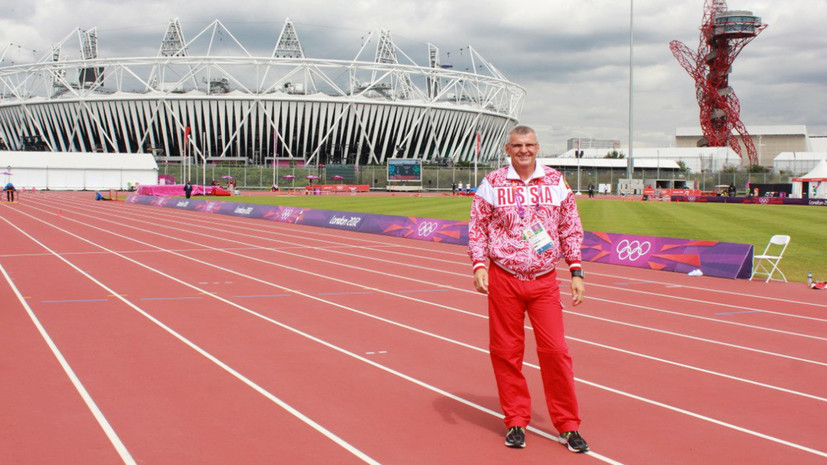The Russian Anti-Doping Agency (RUSADA) reacted to information that runners Anna Knyazeva-Shirokova, Rudolf Verkhovy and Andrei Isaichev filed a lawsuit against the organization in the Sports Arbitration Court in Lausanne (CAS). In March of this year, all three athletes were suspended for collaborating with coach Vladimir Kazarin, who was suspended for life for a systematic violation of anti-doping rules.
RUSADA Deputy General Manager Margarita Pakhnotskaya expressed bewilderment about the claim, as the fact of violation was proved, and the athletes pleaded guilty.
“I don’t understand what these people thought about before. It was just recently, last year. Russian athletics are already in a serious condition, it’s clear what resonance can be now, given the Internet, the media and so on. And these people still go somewhere to train with Kazarin. For me it looks weird and at least stupid. They could not know about the forbidden cooperation, ”RIA Novosti quoted Pakhnotskaya as saying.
A year ago, the RUSADA commission discovered that at one of the team's training camps in Kyrgyzstan, which was held from November 2018 to April 2019, there was Kazarin, who was suspended by CAS in 2017. In total, seven runners worked under his leadership, while Artyom Denmukhametov was among the first to be punished. After the investigation, they were found guilty of collaborating with a disqualified specialist and on March 26 were suspended from the competition for a year.
Thus, the disqualification of Isaichev and Knyazeva-Shirokova ends on December 16 this year, and the Verkhovs - on June 16. According to Pakhnotskaya, the uniqueness of their case lies in the fact that they became the first athletes to be punished after the ban on cooperation with suspended trainers was introduced in the code of the World Anti-Doping Agency (WADA) in 2015.
However, now the CAS has confirmed the information that the runners intend to appeal the decision of RUSADA.
“CAS recently registered the cases of Anna Knyazeva-Shirokova, Rudolf Verkhov and Andrei Isaichev against RUSADA. Arbitration proceedings have begun, ”the court said in a statement.
According to Pakhnotskaya, this decision is connected with the new rule introduced by the All-Russian Athletics Federation (VFLA). According to him, an athlete who has at least one anti-doping rule violation does not have the opportunity to get into the Russian national team. It is worth noting that a year ago, the Verkhovy tried to get neutral status to participate in international starts, but the World Athletics Federation refused him access.
“The rule was violated, we opened a case, provided evidence, and these three athletes received a sanction. And now they are suing. Let's see how the CAS arbitrators will consider this case. Our referees found our evidence convincing, ”Pakhnotskaya explained.
For athletes, the situation is aggravated by the fact that they received two warnings about illegal cooperation. After the first time, they were given written notifications, and after the second time, an investigation was launched and punishment ensued. Thus, one cannot say that they did not know about the violation of the rules.
“Perhaps they want to play on the fact that the VFLA is not an anti-doping organization. But in this case there was no initiative of the federation, it performed the technical-intermediary function of World Athletics. In the new version of the code, the rule on prohibited cooperation will be even more stringent - not in favor of athletes, but in favor of anti-doping organizations. According to the current version of the code, they can still file a lawsuit with CAS, ”concluded Pakhnotskaya.
Kazarin became one of the main defendants in a high-profile doping scandal that erupted around Russian athletics in 2015. Based on testimony from former WADA runner and informer Yulia Stepanova, originally appearing in the Hajo Zeppelt documentary, he, along with walking trainer Viktor Chegin, was charged with systematic anti-doping rule violations. He provided prohibited drugs to his wards, and also participated in hiding positive doping tests.
Kazarin denied his guilt, but World Athletics recommended removing him from his post for life. Subsequently, CAS convicted.

